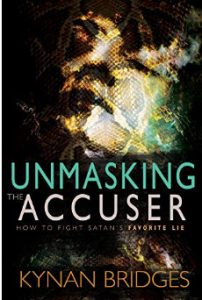
It’s April 21, 2020, as my fingers do their thing on the keyboard. Certain shifts will have taken place wherever you are by the time you read this. Hopefully, you’ll find this message timeless as well as still timely. So, I’m asking for a few minutes of your time and your consideration of this entire message.
With current events in mind, raise your hand or your eyebrows if you dislike the term “New Normal” and what it may, and in some cases must represent. We know the Prior Normal ain’t comin’ back, at least, not 100% of it. Frankly, now that a lot of Prior Normal’s “cosmetic camouflage” has fallen away and revealed what we couldn’t see (or didn’t want to see—like some peoples’ personal-appearance stuff . . . but let’s not go there), we realize some flaws will remain (and, let’s hope, keep us honest), some we shouldn’t continue to live with, and some that downright surprised or shocked us once the facades came down (or some rocks got turned over).
Many of us long for a measure of more “familiar” than “not familiar” back in our lives. For a lot of us, segments of our lives have become like when cartoon characters run through closed doors and solid walls, leaving only their outlines. This is more about the return of something not only familiar but reliable. We want that feeling to linger, to take up residence in our lives again. A feet-on-firm-ground feeling rather than tossed-about-in-a-storm feeling, where someone keeps moving the oars.
After a certain number of years on this planet, we understand that each day brings some measure of change and choice. That days of more serious or significant changes and choices—ones that require greater adjustment or resolution, and or longer recovery and healing—are, thankfully, usually infrequent. Such changes and choices typically affect a limited number of people, whether us directly or someone in our immediate sphere. This time, with the exception of some individuals, people around the planet took more than one hit—maybe got slammed hard—by this pandemic. Some wounds caused by these losses are temporary and, though painful, will mend, whether with visible or invisible scars. Other losses stretch out before us, with an end-point we can’t see, a chasm we cannot fathom how to get across. We know a way is there. Somewhere.
Although I’m still driving on that road, I’m going to shift gears somewhat. Because something related to what’s going on, as described above, is how I found myself landing in a different kind of “New Normal” in the midst of everything happening. Maybe you’ll relate, at least in part. Here goes . . .
If you listen to even just-enough news to keep up, there’s a good chance your ire is gonna fire up. That’s followed by either internal dialogue or yelling at the TV (or whatever device). That’s followed by the tweet or the post or the text or the call or the shared meme—or some or all of them, likely derogatory in some fashion . . . an opinion sandwich with, we hope, some verified fact(s) in the middle. And All Of It Is Deserved—you’re 100% sure of that. With this in mind, let’s keep going.
Maybe there is something to the belief that holding your head lower than your hips for several seconds, which sends blood to the brain, stimulates thought-processes. Because that’s the position I was in as I brushed my hair while listening to the news and thinking and muttering not-nice things about—okay, who it was about doesn’t matter. What happened does. And it went something like this . . .
Holy Spirit convicted me and an internal dialogue kicked into gear.
“What does the Word tell you to do about those who harm or grieve you?”
My brush strokes slowed. I gave a big sigh and said, “Forgive them as readily and willingly as I want the Father to forgive me.”
“What else?”
“Forgive then pray for the Father to forgive them and to (gulp) bless them. But—”
“Did Jesus die on the cross for them?”
Pause. “As far as I know. Okay, yes, for anyone who will receive what He did for them.”
“What does 2 Peter 3:9 say?”
“I know the part you mean: The Father is long-suffering toward us. He’s not willing that any should perish, but that all should come to repentance.”
“If it were you, would you hope at least one person prayed for you—someone they don’t even know—in case their prayers made the difference?”
I stood up straight. “In other words, stand in the gap, like in Ezekiel 22:30, where God said He looked for someone to stand in the gap for others and for the land and—”
“And could find no one.”
Ouch. “Okay, but what are we supposed to do about the frustration, pain, and anger we may feel?”
“Talk to the Father, Jesus, or Holy Spirit about it. Turn to Scripture, which also commands, ‘Be angry but don’t sin’.”
“Umm . . .”
“I know—not as self-satisfying as getting snarky, especially if what you say is clever and it ends up as a meme or tweet with a lot of positive responses or repostings. Still, Revelation 12:10 talks about the one thrown down from Heaven, the one who watches everything we say and do and takes it to God to accuse us day and night.”
“You’re saying—”
“When you forgive and pray for and ask God to bless those who grieve you, as instructed in the Word, you’re working for Yahweh Elohim and honoring what Jesus did on the cross. When you do the derogatory stuff—slander, gossip, snark—you’re working for the adversary who seeks to steal, kill, and destroy. You’re doing his job for him, and he’s loving it. Remember this: The adversary will do anything to hurt God—Yahweh Elohim, which is why he finds humans useful for his purposes. It’s so very easy for him to influence people to do his bidding and not even know it, even those who are supposed to know and do better, who may even believe they are representing God and His Kingdom. Revisit Ephesians 6:12—often—so you remember who it is you’re to stand against, who it is that uses people, with and without their knowledge.”
“Like Hosea 4:6.”
“You’re to pray against those referred to in the Ephesians verse and pray for people.”
Okay, I did say it happened something like what you just read, and it did. But faster. Like a download of conviction, instruction, understanding, followed by repentance and prayer, including a nifty blessing I recently learned and which I find easy to mean when I say it:
Father, I ask you to bless so-and-so (or them) as only You know how. In Jesus’ Name. Amen.
If you’re wondering if this means you’re to take no action ever, that’s not it at all. But if that question came to mind, or one about what it is you’re to do, how about during this Pause with A Purpose we all find ourselves in, find an easy-to-understand Bible online, or order your own copy (maybe the New Living Translation or The Passion Translation), as well as a good study Bible, and read them, first word to last word, because you’re missing some keys you need. Information important to convey is one thing (attaching a workable solution recommendation is even better). Snark, slander, and gossip are something else entirely: They feed the flesh and grieve Holy Spirit. I’ve provided links to Scriptures about this below. However, there’s something imperative to keep in mind about reading the Bible. Proverbs 25:2 (NLV) says, “It is God’s privilege to conceal things and the king’s privilege to discover them.”
We’re to search the scriptures. I’ll borrow from the incredible Dr. Michael Lake’s book, The Shinar Directive: Preparing the Way for the Son of Perdition, to explain more about how this is to be done. There are four levels we need to use to read and interpret the Word:
1. The literal, plain, simple meaning “of the text in grammatical and historical context”. Dr. Lake rightfully reminds us that the Bible was not written last year in Anyplace, USA. It was written during specific times, in specific places, for a specific culture deeply familiar with their history and heritage—BUT, with a timeless message meant for all of us.
2. The implied meaning of the text, where deeper truths are hinted at.
3.“This is the allegorical, typological, homiletical meaning of the text being studied.”
4. The deeper, hidden meaning of the text.
In other words, folks, a lot of us have no idea about how much we don’t know about how to read and study the Word and the true depth of meaning found there. But once you begin—wow! (Check out the link for Dr. Lake’s teaching I provide below.)
Back to the forgive-pray-bless way that is becoming part of my new normal. I slip up, and mean every word of it, until Holy Spirit gets my attention. Then I repent and mean every word of that. I pray for her/him/them—and I mean every word. I really, really do not like the image of a person suffering eternally, especially if even one prayer from me possibly might have altered that; plus, it pleases God when we obey His commandments. I’m getting better at shifting into this gear of Please God Not the Adversary. Each day still brings opportunities for LOTS of practice. Although, I’ve discovered a wonderful other option: Turn the TV (or whatever device) off and do something relaxing or productive. Because listening to hours of people do what we aren’t supposed to is still a form of doing it.
May the Spirit of the Lord be upon you and yours.
May the meaning of John 14:27 fill and sustain you.
May the peace of the Lord that surpasses all understanding be upon you, your loved ones, and your lives, from this day forward.
I pray these things for you, in Jesus’ Name. Amen.
Did I mention that 2020 is the Hebrew year 5780, the year of—wait for it—the mouth? That thing God wants us to get control of—sooner than later? Here’s some related lagniappe, if you feel nudged to check out any or all.
- I’m laughing at God’s terrific sense of humor (especially as I just now got the joke). I learned about this book, Unmasking the Accuser: How to Fight Satan’s Favorite Lie, on a prayer call this morning (04.21.20). It received great recommendation from one of the call hosts. That and site reviews led me to order it. This book, and especially its title, is not only apropos for the topic of this article, it’s stunningly apropos for such a pandemic time as this.
- A video of John Ramirez speaking at a church, titled appropriately for our purposes: “Who Owns Your Tongue?” (I’m serious about God’s sense of humor, because He led me to this video this morning as well, which I began to watch while eating breakfast. I love this guy!)
- Scriptures that also fit:
*James 3:5 — *Proverbs 18:21— *James 1:19 — *32 Scriptures about slander and gossip
*10 Scriptures about praying for those in authority and our nation
*Scripture about praying for those who hurt or grieve you
*19 Scriptures about forgiveness (I did not watch the 2-hour video, so have no comment about it)
*10 Scriptures about idle words —
- If you’re ready to learn more about deeper meanings of scriptural text, Dr. Michael Lake’s YouTube videos titled “Understanding the Kingdom” are riveting. There are quite a number of them. Here’s the link to Part 1
- If you’d like to find a prayer call, where you can gather with two or more “in His Name” on a regular basis, here’s a page link that offers choices

Leave a Reply